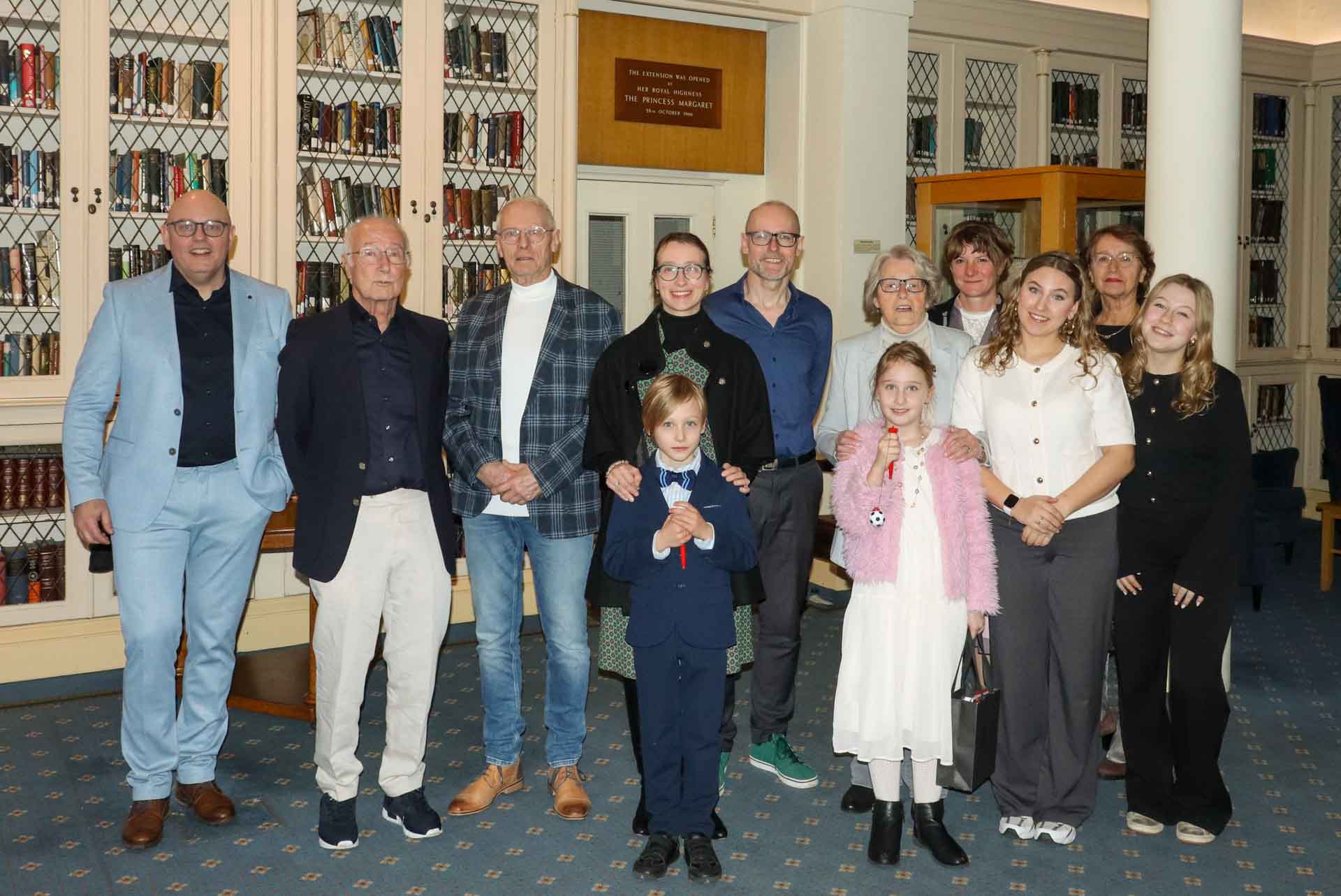
Staff and students gathered recently for Professor Richard Scheltema’s inaugural lecture as Chair of Structural Proteomics. Held at the Liverpool Medical Institution, Professor Scheltema’s lecture was entitled ‘Using proteomics to visualise the intricate protein landscape’. This provided not only an insight into Richard’s fascinating career path but also his motivations.
Richard joined the University of Liverpool in 2024 as Co-Director of the Centre for Proteome Research, having been awarded an extremely competitive Royal Society Wolfson Fellowship. An analytical scientist, his work integrates mass spectrometry, bioinformatics, and chemistry to explore the complex dynamics of proteins.
Having learnt lessons in the gaming industry from the most advanced programmers in the world, Richard’s focus has been in technology development, from the development of automatic number plate recognition software to the creation of data analysis software now used worldwide.
Richard earned his PhD at the University of Groningen, Netherlands, focusing on the then-novel Orbitrap mass spectrometry platform. He published 14 research papers as a PhD student - a phenomenal achievement. His work included illuminating the mechanisms of drug resistance in parasites like Leishmania. As a postdoctoral researcher at the Max Planck Institute for Biochemistry under Professor Matthias Mann, he contributed to pioneering developments in Orbitrap mass spectrometry and applied it to structural biology. Subsequent research integrated in the laboratory of Professor Albert Heck combined new chemistry with advanced mass spectrometry techniques to investigate protein complexes, with the most recent an insulin-inhibiting receptor with therapeutic potential for combating insulin resistance in beta cells.
At Liverpool, Richard's research centres on developing and applying cutting-edge mass spectrometry workflows to uncover molecular changes in health, disease, and ageing, aiming to identify novel therapeutic targets.
Professor Pat Eyers, Head of the Department of Biochemistry, Cell and Systems Biology introduced Richard’s lecture, commenting “Richard is a great example of a modern scientist, who has gone from strength to strength in his career whilst remaining incredibly collegiate, friendly and open to new ideas. I am extremely excited to see what he will achieve in Liverpool."
Professor Scheltema said: "There is amazing potential for collaboration here in Liverpool. My ultimate aim is to translate our findings into treatments that will assist in healthy ageing and cure devastating diseases that are so prevalent in North West England."